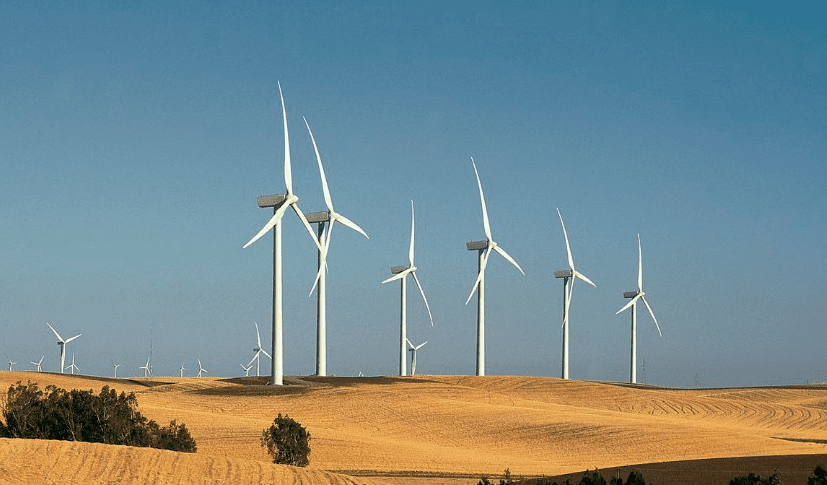
Vestas occupies the top spot when it comes to market share among global wind turbine manufacturers, according to a new analysis, but the Danish business is not immune to the challenges facing several of the leading companies in the wind power sector.
Supply chain issues are buffeting wind energy, as they have other industries. Though Vestas Wind Systems A/S continues as the leading manufacturer of wind turbines, according to a GlobalData report released March 22, the company also this month announced it plans to cut at least 275 jobs, including 75 in Denmark, in what it termed a “highly volatile environment” for the sector. A Vestas spokesperson in a statement said the group wants to balance “2022 priorities and long-term growth” for the company, with the job cuts part of “adjusting our activities and organizational setup.”
It’s the latest round of job cuts for the wind energy giant. A POWER analysis of Vestas’ announcements found the company has jettisoned nearly 2,000 jobs from its manufacturing facilities in Denmark, the UK, Germany, and Colorado since September 2019.
19% Share of Global Market
The GlobalData report published Tuesday shows Vestas had 16.6 GW of wind power installations in 2021, a 19% share of the worldwide market, though that was down from 17.2 GW of new construction in 2020. GE Renewable Energy, which recently noted its own struggles in renewable energy and wind power in particular, ranks second with more than 11.7 GW of installations last year, representing a 13.4% share of the global market in 2021.
“Vestas is a leading wind turbine manufacturer with a strong product portfolio,” said Amit Sharma, the Practice Head of Power at GlobalData. “Vestas is diversifying its geographic footprint in offshore wind with new installations across the world, as well as significant growth in Europe and new markets in onshore wind.”
Sharma noted the majority of GE Renewable Energy’s installations have been in the U.S., the company’s home market.
Siemens Gamesa Renewable Energy SA (SGRE) ranks third in global wind power installations in the past year, with 10.99 GW, a 12.6% share of the market. The company recently announced it would supply the wind turbines for a major installation in the Baltic Sea. “The merger of Gamesa and Siemens created a strong position in the power industry across the onshore and offshore space,” said Sharma. “The competitive advantage of larger size and scale, along with strong geographic diversification, provided the necessary push for SGRE to maintain its position in the rankings.”
SGRE in February said it was cutting 200 jobs at two of its U.S.-based facilities due to a reduction in orders for its wind turbines. The company in 2021 closed two facilities in Spain, costing more than 260 jobs, in addition to more than 1,200 job cuts in its Denmark operations over the past few years.
China Company Sees Drop in Installations
Xinjiang Goldwind Science & Technology Co., headquartered in Beijing, China, ranks fourth with about 9.8 GW of installations, or 11.2% of global market share, though that was down from 12.93 GW of new construction in 2020. Germany-based Nordex SE ranks fifth after installing 8.2 GW of wind power last year, up from 4.72 GW in 2020.
“The top five turbine manufacturers together accounted for nearly 65% of the total installed capacity in 2021,” said Sharma. “Consistent growth will come from mature markets in the U.S. and Europe, whilst additional growth is estimated to be driven by global offshore market and developing markets in South East Asia and MENA region.”
Nordex earlier this year announced it was closing a nacelle manufacturing plant in Spain, and in February said it would end production of rotor blades at a manufacturing facility in Germany by the end of June. The closure in Germany will cost about 600 jobs.
José Luis Blanco, Nordex Group CEO, in announcing that closure said, “The wind industry is operating in a highly competitive global market which is primarily cost-driven. Against this backdrop, we have to optimize our global production and procurement processes in order to produce profitably and ensure the Nordex Group’s competitiveness. As a German and European company, we particularly regret that we see no alternative to this painful step. We need an industrial policy that takes a sustainable and comprehensive approach to decarbonization as well as supply chain independence.”
—Darrell Proctor is a senior associate editor for POWER (@POWERmagazine).
The post Vestas Cutting Jobs Despite Leading Wind Installations appeared first on POWER Magazine.